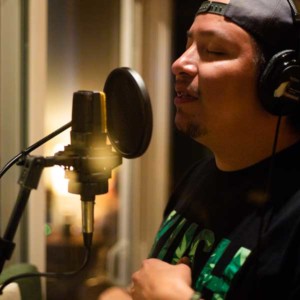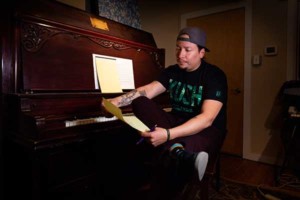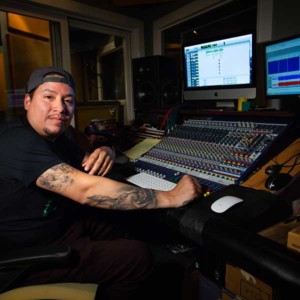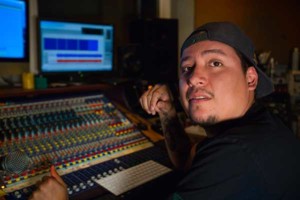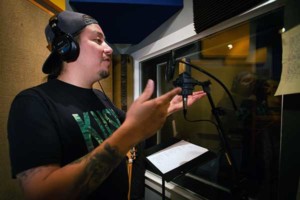“[Native Americans have] always had our oral history and storytelling ability. I want to make music that shows that.”
— Kunu Bearchum
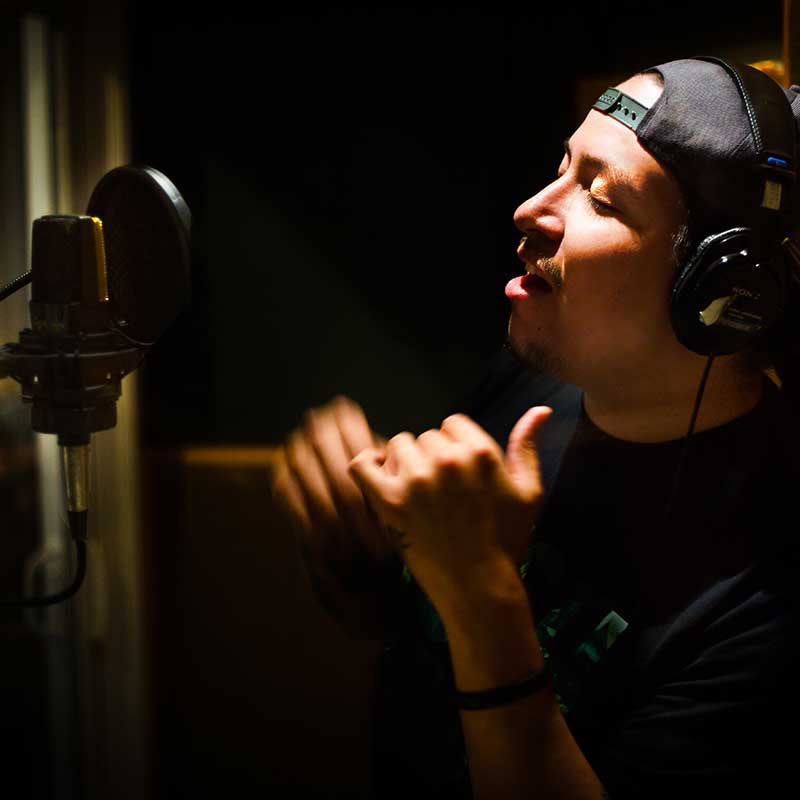
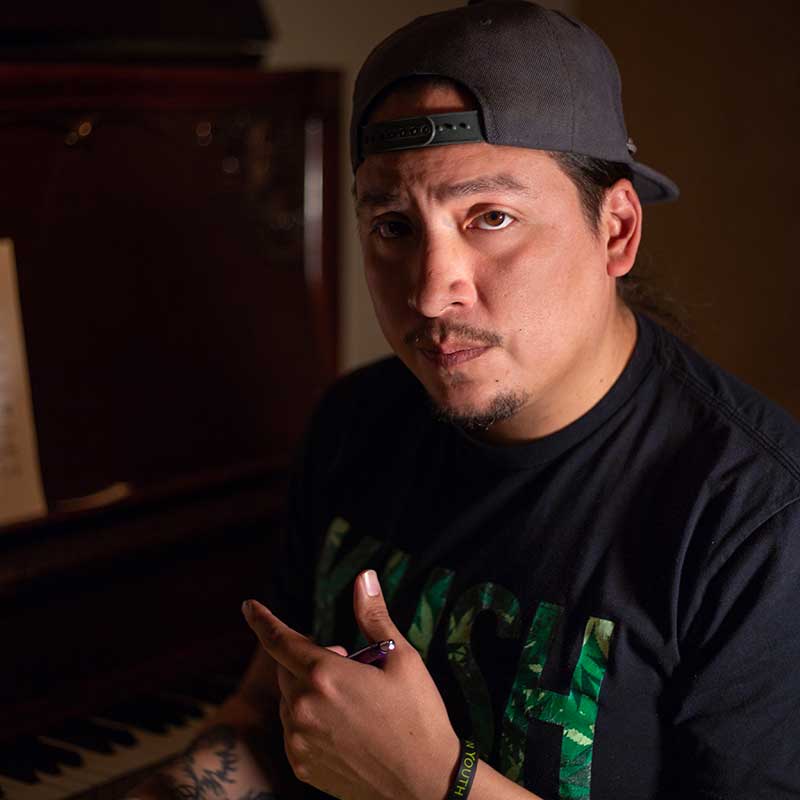
Kunu Bearchum, of Northern Cheyenne and Ho-chunk Nations, raps under the moniker of STRYK-9 but assures his rhymes aren’t as astringent as the name implies. “I want to convey that 1), Native Americans are still here and 2), you’re going to respect us,” he says. “We have a voice and we’re not the Indians in teepees like you think we are.”
Bearchum was born in Eugene, Oregon, and credits his love for hip-hop to his family and the Bay Area rappers he grew up listening to. He attended school with a predominantly white student body and staff in Eugene, where Bearchum was frequently kicked out of class for refusing to stand for the Pledge of Allegiance. “I was different and the system around me didn’t like that. We were all activists,” he says of his family and the tight-knit Native community. “I was a nuisance, but I had a lot of support. I knew I was doing the right thing.”
In elementary school, Bearchum lost his father. On a recent track called “Byron’s Song,” he opens up about his grief. “My dad’s name was Byron. He was murdered by the cops,” he says. “The song is connecting [him] and my son. It’s [a track] that you really have to sit down and listen to.” At eight, Bearchum moved to New Mexico with his mother.
After graduating, Bearchum reconnected with family in Oregon. While enrolled in Portland Community College’s multimedia program, he honed in on his craft, not just on the mic, but behind the camera and on the computer as well. He learned how to film and edit his own music videos and do graphic design—all of which he does now for clients as a freelancer.
Bearchum dreams of creating an entirely Native-focused multimedia broadcast and distribution company like Vice or Aboriginal Peoples Television Network. In the meantime, he’s working hard to launch a STEM summer camp for middle school-aged Native students that marries biomedical and nutrition science with traditional ecological knowledge.
“Where I’m at now is an evolution of what I feel like I should be putting into the world,” he says. “[Native Americans have] always had our oral history and storytelling ability. I want to make music that shows that.”
Storyteller: Cervante Pope | Photos: Cervante Pope and Joshua James Huff | Published: May 2018
Follow:

